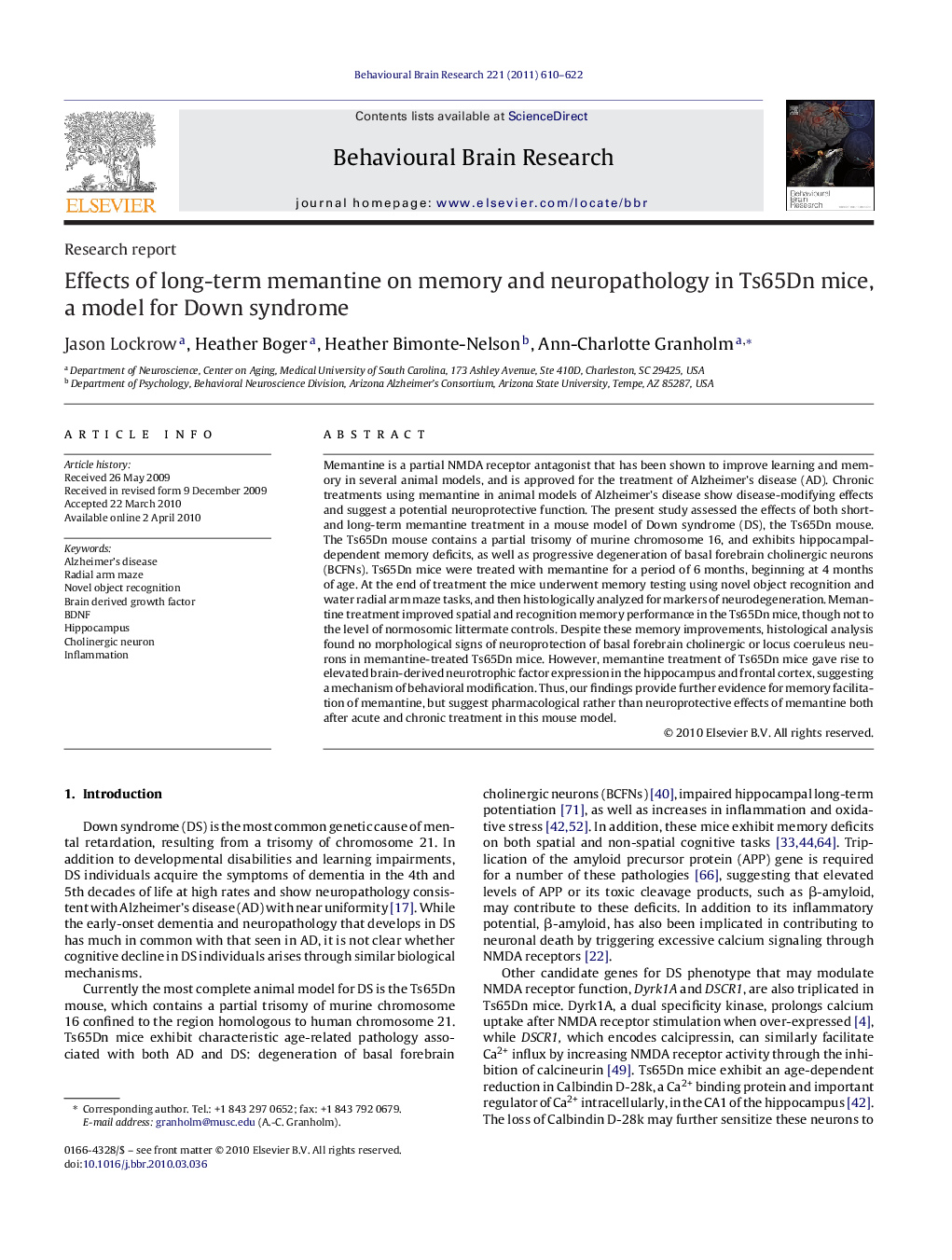| Article ID | Journal | Published Year | Pages | File Type |
|---|---|---|---|---|
| 4313742 | Behavioural Brain Research | 2011 | 13 Pages |
Memantine is a partial NMDA receptor antagonist that has been shown to improve learning and memory in several animal models, and is approved for the treatment of Alzheimer's disease (AD). Chronic treatments using memantine in animal models of Alzheimer's disease show disease-modifying effects and suggest a potential neuroprotective function. The present study assessed the effects of both short- and long-term memantine treatment in a mouse model of Down syndrome (DS), the Ts65Dn mouse. The Ts65Dn mouse contains a partial trisomy of murine chromosome 16, and exhibits hippocampal-dependent memory deficits, as well as progressive degeneration of basal forebrain cholinergic neurons (BCFNs). Ts65Dn mice were treated with memantine for a period of 6 months, beginning at 4 months of age. At the end of treatment the mice underwent memory testing using novel object recognition and water radial arm maze tasks, and then histologically analyzed for markers of neurodegeneration. Memantine treatment improved spatial and recognition memory performance in the Ts65Dn mice, though not to the level of normosomic littermate controls. Despite these memory improvements, histological analysis found no morphological signs of neuroprotection of basal forebrain cholinergic or locus coeruleus neurons in memantine-treated Ts65Dn mice. However, memantine treatment of Ts65Dn mice gave rise to elevated brain-derived neurotrophic factor expression in the hippocampus and frontal cortex, suggesting a mechanism of behavioral modification. Thus, our findings provide further evidence for memory facilitation of memantine, but suggest pharmacological rather than neuroprotective effects of memantine both after acute and chronic treatment in this mouse model.
